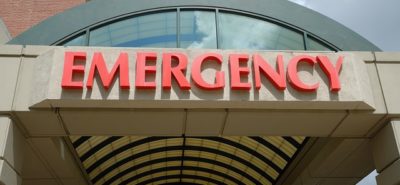When you check into the hospital, you expect the medical professionals to help you get better. But far too often, hospitals are making people sick. The Centers for Disease Control and Prevention (CDC) reports that one in 25 hospital patients gets what’s known as a hospital-acquired infection thanks to the overuse of antibiotics and unsanitary practices. If that’s not shocking enough, a one-year New England Journal of Medicine study of 183 hospitals in 10 states found that 648,000 patients acquired about 721,800 infections and some 75,000 of these patients died of hospital-acquired infection. (About half of those deaths occurred outside the intensive care unit.) If a loved one in Illinois passed away as a result of such an infection, contact a wrongful death lawyer in Chicago today. Your family may be entitled to compensation for their death. And if you’ve been the victim of a healthcare-related infection, a personal injury or medical malpractice attorney may be able to help you get money from the doctor or hospital responsible for your illness.
Facts About Hospital-Acquired Infections
According to the CDC:
“Modern healthcare employs many types of invasive devices and procedures to treat patients and to help them recover. Infections can be associated with the devices used in medical procedures, such as catheters or ventilators. These healthcare-associated infections (HAIs) include central line-associated bloodstream infections, catheter-associated urinary tract infections, and ventilator-associated pneumonia. Infections may also occur at surgery sites, known as surgical site infections.”
While the hospital-acquired infection statistics may seem grim, there is some good news to report. New data finds a 46 percent decrease in central line-associated bloodstream infections between 2008 and 2013. In that same time period, there’s also been a 19 percent decrease in surgical site infections arising from certain medical procedures. Hospital-onset MRSA and C. difficile infections are also in decline. That said, there’s been a 6 percent uptick in catheter-associated urinary tract infections between 2009 and 2013.
These infections are preventable, but require diligence on behalf of healthcare personnel. Prompt and thorough hand washing before and after seeing patients, plus the use of disposable gloves and aprons goes a long way toward preventing the spread of germs. Best practices also call for sterilizing instruments and other hard surfaces, keeping infected patients in isolation, and using antimicrobial surfaces, when possible.
Medical Malpractice & Wrongful Death Basics
If you were the victim of a a hospital-acquired infection, you may have grounds for a medical malpractice lawsuit against the hospital or specific medical providers. And if a family member died as a result of a hospital-acquired infection, then your family may have grounds for a wrongful death lawsuit.
To win such a lawsuit, your Chicago wrongful death lawyer or medical malpractice attorney will have to prove several things:
- That there was a doctor-patient relationship between the medical professional being sued (known as the defendant). In most medical malpractice or wrongful death lawsuits, this fact is accepted by the defendant without challenge.
- That the doctor or healthcare professional provided sub-standard care. In treating patients, the medical profession follows what is known as the standard of care. In essence, the standard of care asks, “What specific care would another doctor provide when treating a similar patient for a similar condition?” In the case of hospital-acquired infections, the standard of care would include measures taken to both prevent the spread of infections, as well as the steps taken to treat a patient who has been diagnosed with such an infection. So, for example, a doctor who fails to wash his hands between treating patients and fails to wear gloves wouldn’t be following the standard of care.
- Your Chicago wrongful death lawyer or medical malpractice attorney will also have to demonstrate that there’s a connection between the doctor’s negligence and you or your family member’s injury.
- Finally, you’ll have to show that you or your loved one was harmed as a result of the healthcare professional’s actions. If the doctor failed to wash his hands between treating patients, but there was no spread of infection, then there wouldn’t be any harm.
- In the event of a wrongful death lawsuit, your Chicago wrongful death attorney will also have to prove that it was the hospital or healthcare professional’s negligence that killed the patient. Many people who have hospital-acquired infections die of other things, so it might be more difficult to prove that a hospital-acquired infection was a contributing factor if the patient died of a heart attack, or if the patient was also at the end-stages of cancer.
If You Think You Have a Wrongful Death or Medical Malpractice Case
If you or a loved one suffered from a hospital-acquired infection and believe it was the result of the hospital or healthcare professional’s negligent behavior, then you may have a valid medical malpractice or wrongful death claim. Contact the Chicago-based personal injury lawyers at Cogan & Power, P.C., today at (312) 477-2500. During a free initial consultation, we’ll discuss the circumstances surrounding the hospital-acquired infection and help determine whether you have grounds for a lawsuit against the hospital or medical professional.

